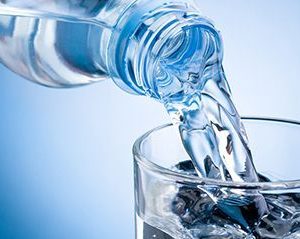- Could Your Grocery Store Meat Be Causing Recurring UTIs?
- Are You Making This Expensive Thermostat Error This Winter?
- Recognizing the Signs of Hypothyroidism
- 10 Strategies to Overcome Insomnia
- Could Artificial Sweeteners Be Aging the Brain Faster?
- Techniques for Soothing Your Nervous System
- Does the Water in Your House Smell Funny? Here’s Why
- Can a Daily Dose of Apple Cider Vinegar Actually Aid Weight Loss?
- 6 Health Beverages That Can Actually Spike Your Blood Sugar
- Treatment Options for Social Anxiety Disorder
Could Tiny Plastic Particles Reach the Fetus From Mom’s Food? Rat Study Raises Concerns

Most food and water contains “nano-sized” microplastics, and new animal research suggests these tiny particles pass from pregnant rats to their unborn offspring and may impair fetal development.
The same could be true in humans, the study suggests.
“Much remains unknown, but this is certainly cause for concern and follow-up study,” said Philip Demokritou, a professor of nanoscience and environmental bioengineering at the Rutgers School of Public Health, in New Jersey.
A typical person ingests about a credit card’s worth of microscopic plastic particles each week, Demokritou estimated. This plastic is consumed through food and the air after erosion breaks down items exposed to the environment.
Previous studies in pregnant laboratory animals have found adding these plastics to food impairs their offspring, but those studies didn’t determine whether the plastics could pass from mother to baby.
For this study, researchers fed these nanoscale plastics to five pregnant rats. Through imaging, they found that those plastic particles permeated the placentas, as well as the livers, kidneys, hearts, lungs and brains, of their offspring.
This shows that these plastics can breach the intestinal barrier of pregnant mammals, the maternal-fetal barrier of the placenta and all fetal tissues, the study authors said.
“The use of plastics has exploded since the 1940s due to their low cost and versatile properties. From 9 billion metric tons produced over the last 60 years, 80% ended up in the environment, and only 10% were recycled,” Demokritou noted in a Rutgers news release.
Although these petroleum-based plastics are not biodegradable, they are broken down by weathering and light, Demokritou explained.
“As public health researchers, we are trying to assess the health risks from such an emerging contaminant to inform policymakers and develop mitigation strategies,” he said. “The goal is also to increase the reuse and recycling of plastics and even replace them with biodegradable, biopolymer-based plastics. This is part of our bigger societal goal towards sustainability.”
In the new study, feeding pregnant lab animals these plastics restricted the growth of their offspring and harmed the development of their brains, livers, testicles, immune systems and metabolisms.
Whether this also happens to pregnant humans isn’t certain, but some studies suggest plastics affect human embryonic development, Demokritou said.
The researchers said future studies will investigate how different types of plastics cross cell barriers. They will also look at how plastic particle size affects the process and how plastics harm fetal development.
The findings were published recently in the journal Nanomaterials.
More information
The U.S. Environmental Protection Agency has more on microplastics.
SOURCE: Rutgers University, news release, Feb. 27, 2023
Source: HealthDay
Copyright © 2026 HealthDay. All rights reserved.










